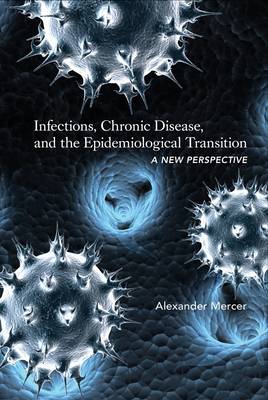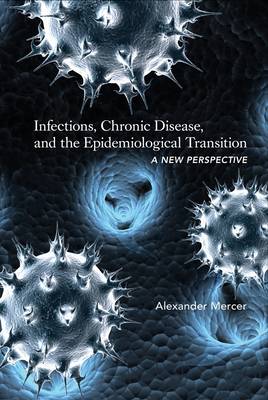
Bedankt voor het vertrouwen het afgelopen jaar! Om jou te bedanken bieden we GRATIS verzending (in België) aan op alles gedurende de hele maand januari.
- Afhalen na 1 uur in een winkel met voorraad
- Gratis thuislevering in België vanaf € 30
- Ruim aanbod met 7 miljoen producten
Bedankt voor het vertrouwen het afgelopen jaar! Om jou te bedanken bieden we GRATIS verzending (in België) aan op alles gedurende de hele maand januari.
- Afhalen na 1 uur in een winkel met voorraad
- Gratis thuislevering in België vanaf € 30
- Ruim aanbod met 7 miljoen producten
Zoeken
€ 209,45
+ 418 punten
Omschrijving
Since the eighteenth century, chronic diseases have superseded acute infectious diseases as the predominant cause of morbidity and mortality; age at death has shifted from childhood to older adult ages; and life expectancy, population, and the proportion of older people continue to increase. This transition constitutes a fundamental change in the human condition, and thus an understanding of the historical process behind it is of major importance.
This book is the first to document this ongoing, worldwide epidemiological transition in a single country, drawing on records of cause-specific mortality since the eighteenth century in England and comparative data from other Western countries. Alexander Mercer discusses possible causes of specific disease trends, reassessing the relative importance of "health interventions" and "standard of living" as determinants of increased life expectancy, and presents a new theory of how chronic diseases have developed. Showing that specific microorganisms are causal agents in some chronic diseases, the study suggests that a new conceptualization of the epidemiological transition is required, one that takes into account interrelationships between infectious diseases, between infections and chronic diseases, and between disorders underlying different chronic diseases. Alexander Mercer is an independent researcher.
This book is the first to document this ongoing, worldwide epidemiological transition in a single country, drawing on records of cause-specific mortality since the eighteenth century in England and comparative data from other Western countries. Alexander Mercer discusses possible causes of specific disease trends, reassessing the relative importance of "health interventions" and "standard of living" as determinants of increased life expectancy, and presents a new theory of how chronic diseases have developed. Showing that specific microorganisms are causal agents in some chronic diseases, the study suggests that a new conceptualization of the epidemiological transition is required, one that takes into account interrelationships between infectious diseases, between infections and chronic diseases, and between disorders underlying different chronic diseases. Alexander Mercer is an independent researcher.
Specificaties
Betrokkenen
- Auteur(s):
- Uitgeverij:
Inhoud
- Aantal bladzijden:
- 352
- Taal:
- Engels
- Reeks:
- Reeksnummer:
- nr. 31
Eigenschappen
- Productcode (EAN):
- 9781580465083
- Verschijningsdatum:
- 22/12/2014
- Uitvoering:
- Hardcover
- Formaat:
- Genaaid
- Afmetingen:
- 152 mm x 229 mm
- Gewicht:
- 689 g

Alleen bij Standaard Boekhandel
+ 418 punten op je klantenkaart van Standaard Boekhandel
Beoordelingen
We publiceren alleen reviews die voldoen aan de voorwaarden voor reviews. Bekijk onze voorwaarden voor reviews.









